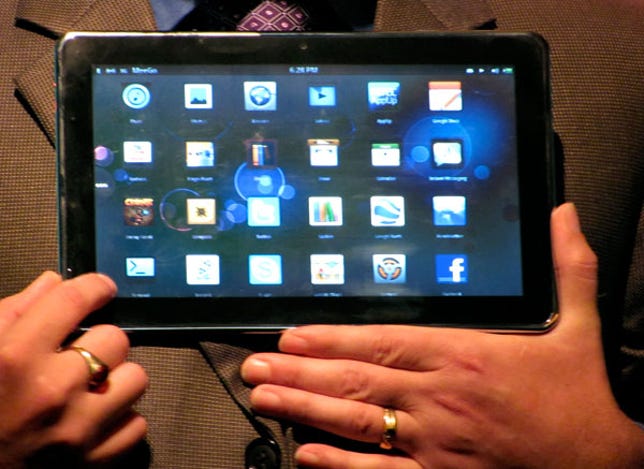Intel announced last week at Computex it will offer consumers a consistent, optimised interface across several platforms including netbooks, tablets and mobile phones towards the end of this year.
Intel said it plans to simplify the experience for users and developers alike, with solid hardware and software platforms such as its new MeeGo operating system, which it is developing in conjunction with Nokia.

(Credit: David Flynn)
MeeGo is a combination of two different operating systems — Nokia’s Maemo and Intel’s Moblin — to produce a single operating system, which according to Intel was designed to “reduce fragmentation”, or in other words reduce the number of different systems. The other main open-source platform in this category is Google’s Android.
Intel said that fewer operating systems to learn was of benefit to both consumers and programmers.
MeeGo offers two different modes, an iPhone-like “Simple” mode and the multimedia-intensive “Panel” mode, which aggregates web pages, social media feeds and media playback.
“What we wanted to do was create a rich, dynamic user interface that puts the information that you want and the content that you enjoy front and centre in a fresh and intuitive way,” said Doug Fisher, Intel’s vice president and general manager of systems software.
MeeGo 1.0 was released on 27 May 2010 and supports netbooks, while the next MeeGo, version 1.1, is due in October and will expand support to include smartphones.
Intel also detailed its AppUp store, which is a cross-platform attempt to compete with the likes of Google’s Android Marketplace and Apple’s iTunes. The first company to support it is Asus, with links to the store on its latest crop of netbooks.
Atom everywhere
On the hardware side, Intel aims to offer “Atom Everywhere” with the low-power processors gracing everything from netbooks to phones and even TVs.
Intel representatives said the Atom processor and MeeGo will be designed to work well together, but they also pointed out that the Atom processor was “OS-agnostic” and would work just as well in an Android or Windows environment.
Doug Fisher showed off a prototype Intel tablet running MeeGo at Computex, which was similar in appearance to Apple’s iPad, though a little thicker.
Intel announced it had started production on a dual-core version of the Atom processor, codenamed Pine Trail, which would be available in netbooks in Q3 2010. The new processors will be able to playback native 1080p streams — a limitation on current netbooks — and enable faster browsing as well.
Desktop processors
While Intel’s focus during Computex was firmly on mobile computing, the company also announced new “mainstream” processors and gave us a glimpse of what is coming next year. The company announced two new “unlocked” mainstream PC processors at the show, the Core i7-875K and the Core i5-655K, which are able to be overclocked on the fly, meaning better performance without additional cost.
“Who needs this performance? You! Me! Doing normal stuff!” said Mooly Eden vice president of Intel’s PC client group with a dramatic flourish.
But the company says its coup de grâce is the upcoming Sandy Bridge processor due in 2011, which will integrate a graphics processor on-board and focus on increased performance and low power consumption.



